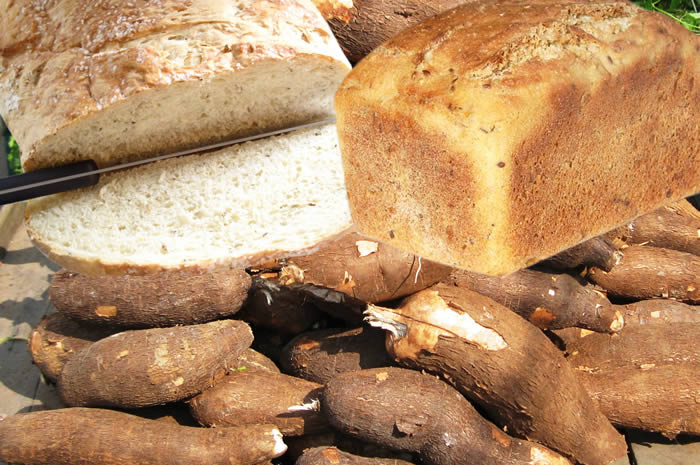The Nigerian Cassava Growers Association has stated that Nigeria loses more than $200m annually for not implementing the cassava bread scheme that could have incorporated cassava products in the production of bread.
This was disclosed by the new NCGA National President, Mustapha Bakano while speaking with journalists after the inauguration of executive members on Tuesday in Abuja.
He said the continued reliance on flour for bread is costing the country millions of dollars in importation bills.
In October 2012, the former Minister of Agriculture and Rural Development, Akinwunmi Adesina, inaugurated the Cassava Bread scheme and announced the establishment of the Cassava Bread Development Fund to ease the gradual substitution of wheat flour with cassava flour.
The government also inaugurated the first commercial 10 per cent composite cassava flour products in its bid to actualise the cassava inclusion policy in bread flour.
One of the aims of the proposed introduction of between 10 and 20 per cent of cassava flour in wheat for bread production, as contained in the cassava bread initiative, was to save a considerable amount of foreign exchange for the country.
Adesina who is currently the President of the African Development Bank, had explained that the target was to make Nigeria the largest cassava processor. Nigeria is the largest producer of cassava globally.
But the initiative by Adesina crashed after the minister left. This, experts say, is one major reason Nigeria spends heavily on wheat imports annually.
Speaking in an interview, Bakano blamed the change in policy direction for the jettisoning of the cassava bread initiative.
He pointed out that although Nigeria is the leading producer of cassava, the revenue generated from it is less than $170m, while China, despite producing less, is generating over $2m annually from the sector.
He said, “I won’t say we got it wrong but something happened along the line, government policy direction changed. During the time of former Minister of Agriculture and Rural Development, Akinwunmi Adesina, there was the cassava bread initiative, had it continued, by now, we would have been using 40 per cent of cassava in flour in the bakery. By now we would not be saying we are suffering from depletion in our foreign reserve.”
“Now, we are working tirelessly to see how we can ensure that first, 10 per cent of cassava comes into wheat to reduce the import bill for the country. If we can input 10 per cent in the first year, we will look at how we can reduce the import bill by almost $200m, by the time we go to 20 per cent, it is now 400m so we are looking at a framework where we can go to 3 to 4 years and we will give it to the government to see how they can be able to implement it.”
According to him, the loss is just in one sector as the product can be used in the pharmaceutical sector and ethanol where biofuel can be produced from the tuberous edible plant.
Bakano, however, said the association is working on a resource development plan “to see how we can bring in the framework that will address all those mitigations and see what the government can help us do.
“We want the government to give a policy direction so that when the policy becomes law, it becomes national and everybody will abide by it so that we can be consuming what we produce instead of putting too much import bill on our country. 40 percent of cassava can go into bread and we will feel comfortable eating it and it is more nutritious.”

